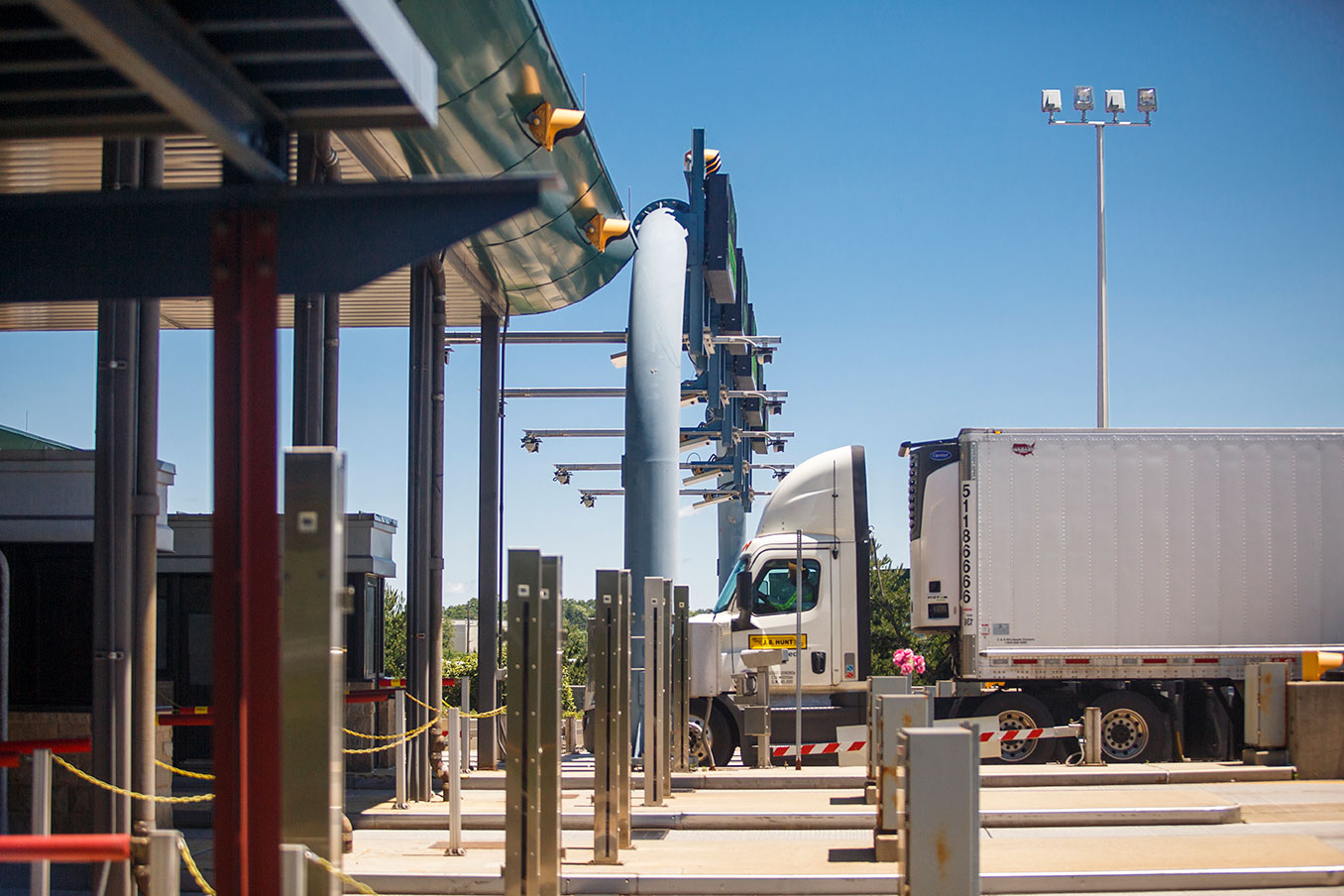HARRISBURG — The Pennsylvania Turnpike Commission reminds drivers that a toll increase approved last year will take effect across the highway system at 12:01 a.m., Jan. 7.
The Commission had approved a 5% increase for E-ZPass and Toll by Plate customers July 18, 2023. The most common toll for a passenger vehicle will increase from $1.80 to $1.90 for E-ZPass customers and from $4.40 to $4.70 for Toll by Plate customers.
The most common toll for a Class-5 tractor-trailer will increase from $14.40 to $15.20 for E-ZPass and from $29.40 to $30.90 for Toll by Plate.
After the increase is applied, E-ZPass and Toll by Plate rates for passenger and commercial vehicles will round up to the nearest dime.
E-ZPass drivers will continue to get the lowest rates, saving nearly 60% on tolls. To check toll rates for travel on the PA Turnpike, visit https://www.paturnpike.com/toll-calculator.
“Our annual toll increases directly support the escalating Act 44 debt service we have had to manage due to the mandates of Act 44 of 2007,” explained Rick Dreher, PTC Chief Financial Officer. “However, even given that significant financial management challenge, our per-mile toll rates are lower than national toll averages and remain in the mid-range among the 47 toll roads in the U.S.”

With the state’s passage of Act 44 of 2007, the Turnpike was obligated to pay PennDOT $450 million per year to fund non-Turnpike transportation needs around Pennsylvania totaling $8 billion since 2008. Though the payments have been greatly reduced, and no new Act 44 debt is being accrued the Turnpike must continue to raise tolls in order pay the resulting escalating Act 44 debt service due through 2051.
In addition to yearly toll rate increases the PTC has taken the following internal steps to control costs and meet these financial obligations:
- We have managed our debt efficiently, availing ourselves of opportunities to refinance our debt at lower interest rates and have generated over $1 billion in interest rate savings.
- We’ve controlled our Operating expenses and have had essentially flat operating costs since 2016 to ensure the Commission is running leaner to support the costs of Act 44.
- We have a leaner workforce; current complement is nearly 50% lower than its peak in 2002.
- We cut our 10-year Capital program by $1 billion in 2017 focusing on protection projects rather than reinvesting in reconstruction and expansion efforts.
- Identified about $500 million of non-toll funding sources to pursue, like electric-vehicle chargers at service plazas and commercializing the fiberoptic network being installed across the system.
“Our goal is to be good stewards of the customers’ dollars and we are doing so by controlling costs, operating a safe and reliable road with premium services, funding transportation projects across the Commonwealth (Act 44 projects) and reinvesting back into our system,” Mark Compton, PTC Chief Executive Officer said. “The pace and scale of our toll increases are directly attributable to Act 44.”
The Turnpike also reminds drivers that Act 112 – signed into law in 2018 and enhanced by the legislature in 2022 — enables the Turnpike to work with PennDOT to suspend motor-vehicle registrations of owners with four or more overdue Toll by Plate invoices or $250 or more in unpaid tolls or outstanding toll invoices.
To encourage prompt payment, the PA Turnpike has made it easier to pay. The Toll by Plate invoice now includes a QR code that customers scan to pay directly from their devices.
Additionally, the Turnpike partnered with a cash-payment network enabling customers to use cash to pay invoices and replenish E-ZPass accounts at 70,000 stores nationwide.
At the current time, commercial traffic volumes are up 14.5 percent versus pre-pandemic levels and passenger traffic is approximately 95 percent of the pre-pandemic peak with customers reporting their choice to travel the Turnpike is based on safety, convenience, and responsiveness to their roadway needs.
Construction supporting the PA Turnpike Commission’s conversion to Open Road Tolling (ORT) is well underway in the eastern part of the state with the construction of over-head gantries and support buildings. This conversion is the Turnpike’s next step in improving customer experience, system access and ensuring safe, free flow of traffic across the Commonwealth.
ORT moves tolling points to the active roadway and accesses tolls to vehicles as they drive at highway speeds beneath overhead structures called gantries, located between interchanges. This change will go into effect East of Reading interchanges and along the Northeastern extension in January 2025 and will be launched on the rest of the system in early 2027.
Most Turnpike customers have reported a preference for all-electronic tolling over traditional interchanges. The next stage of all-electronic tolling, ORT, will respond to customers’ desires to move freely on an open roadway that reduces congestion and provides an improved line of sight.






















